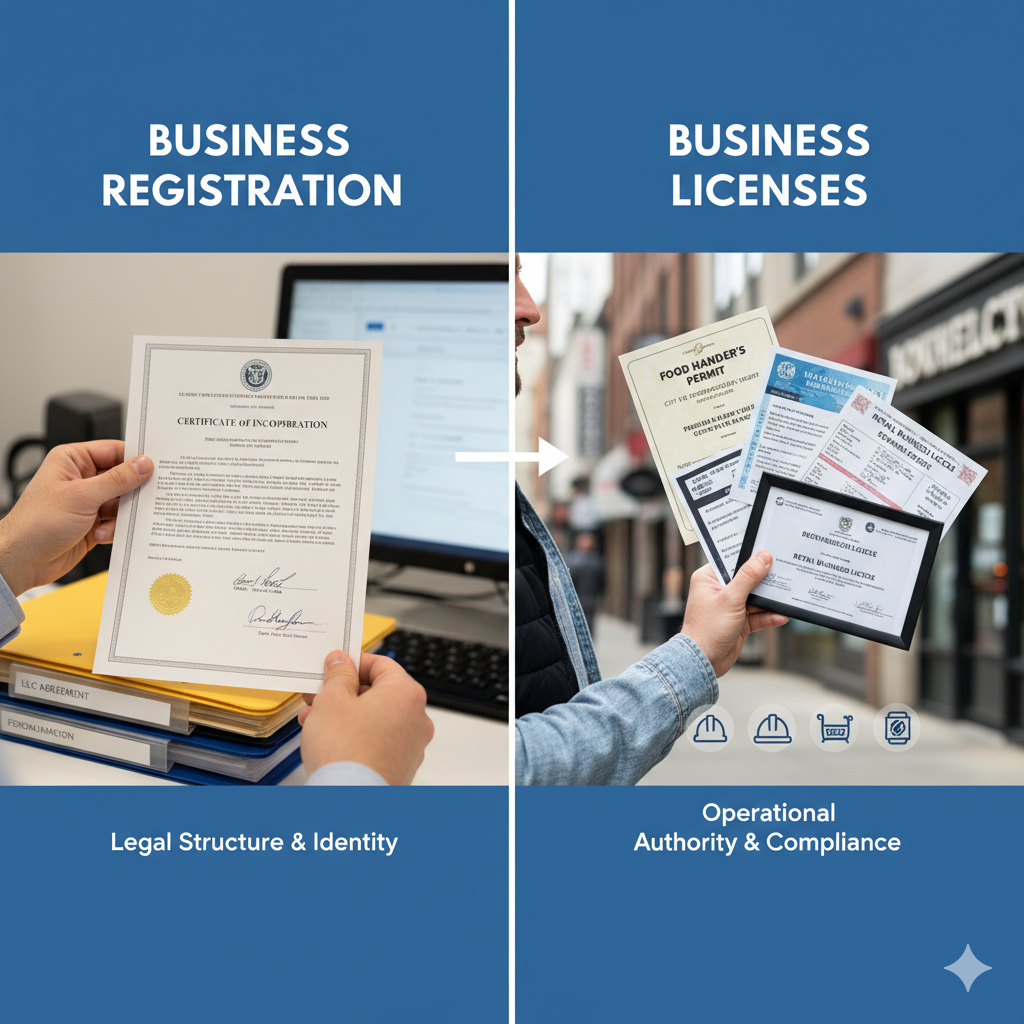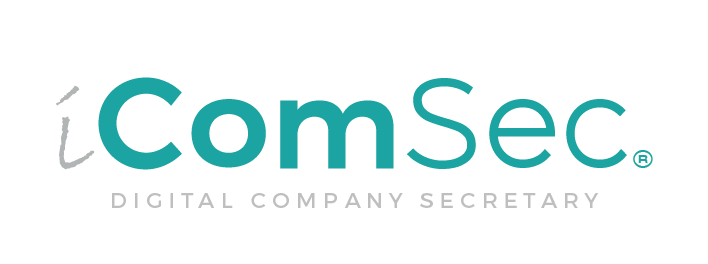
Business Registration vs Business Licenses in Malaysia – What’s the Difference?
Legal compliance is the foundation of sustainable business growth in Malaysia, and the first step is to clearly distinguish between business registration and business licenses.
Malaysia has become a strategic choice for both local and foreign entrepreneurs, thanks to its stable economy, advantageous geographical location, and business-friendly environment.
However, many entrepreneurs initially confuse business registration with business licensing, mistakenly assuming that once the company is registered, operations may begin immediately.
In reality, these are two distinct yet equally essential components of Malaysia’s business compliance framework.
- Business registration grants a company its legal identity.
- Business licenses authorize a company to carry out specific activities.
Key Differences Between Business Registration and Business Licenses
Feature
Business Registration
Business License / Permit
Main Purpose
Grants a company its legal corporate identity in Malaysia
Authorizes a company to engage in specific activities or comply with local council requirements
Liability Protection
Sdn Bhd (Private Limited): Limited liability protection
Partnerships & Sole Proprietorships: Unlimited personal liability exposureNot applicable
Issuing Authority
Companies Commission of Malaysia (SSM)
Local councils and relevant government agencies
Timing
Required before applying for licenses or conducting any transactions/agreements in the company’s name
Required after registration but before occupying premises or commencing business operations
Validity
Sdn Bhd: Perpetual succession
Partnerships & Sole Proprietorships: Business ceases upon withdrawal or death of owner/partnerUsually valid for 1 year (renewable annually)
Common Types
Sole Proprietorship, Partnership, Private Limited (Sdn Bhd)
Food & Beverage licenses, Retail licenses, MITI permits, Local council licenses (e.g., DBKL), Signboard permits
Mandatory?
Yes – all businesses must register
Yes – required for specific activities, industries, and any business premises with signage or factory/office operations
📌 In short:
- Business Registration = Company’s “Identity Card” – legally recognizing the entity.
- Business License = Company’s “Operating Permit” – ensuring activities comply with national and local regulations.
Common Mistakes & Risks to Avoid
Many businesses make costly errors when handling registration and licensing:
- ❌ Starting operations after only registering with SSM: Registration is essential, but licenses are mandatory for many industries before operations can legally commence.
- ❌ Overlooking industry-specific requirements: Sectors like food & beverage, education, and financial services require additional permits.
- ❌ Underestimating capital requirements: While the legal minimum paid-up capital may be RM1, banks and certain regulated industries (e.g., wholesale, retail, foreign-owned businesses) may impose higher requirements. This should be addressed with your company secretary once a bank account is opened.
- ❌ Ignoring annual renewal obligations: Licenses usually require yearly renewal, while Sdn Bhd companies must file annual returns and audited financial statements with SSM.
- ❌ Choosing restricted business names without availability checks.
- ❌ Using a residential address as a business address: This may lead to privacy concerns and rejections when applying for bank accounts or licenses.
Failure to comply may result in fines, penalties, reputational damage, or even forced business closure.
Best Practices for Compliance and Sustainable Operations
To ensure smooth business operations in Malaysia, companies should:
- Seek professional support: Consult licensed company secretaries, law firms, or compliance experts to guide you through documentation and applications.
- Understand ongoing obligations: After incorporation, companies must appoint a company secretary, open a corporate bank account, register for taxes (corporate tax, SST, etc.), and fulfill employee obligations such as EPF and SOCSO contributions.
- Prioritize annual compliance: Sdn Bhd companies must file annual returns and audited financial statements with SSM, in addition to renewing applicable licenses on time.
Conclusion: Compliance as the Cornerstone of Success
Launching a business in Malaysia begins with proper company registration and obtaining the necessary business licenses. These steps not only establish legal operations but also build credibility, secure banking facilities, attract talent, and lay the foundation for sustainable growth.
With its stable economy, strategic location, and pro-business policies, Malaysia offers an environment full of opportunities for both local and foreign investors. Entrepreneurs who fully understand and comply with the legal framework can confidently build and expand their ventures in this dynamic Southeast Asian market.
👉 Remember:
- Business registration is the “Identity Card” of your company.
- Business licensing is the “Operating Permit” for your activities.
Both are indispensable pillars of Malaysia’s compliance framework.
iComSec provides complete solutions for entrepreneurs and investors. Let us handle the paperwork – so you can focus on growing your business.
Contact iComSec today for a free consultation or a customized quote.
Business Registration vs Business Licenses in Malaysia – What’s the Difference?






